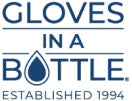
Alcohol and Eczema: Are They a Good Combination?
Share
Before you get all excited, I’m not going to tell you that they’re a good mix so you can put down that gin & tonic you were just reaching for! We can look at this topic in two ways. We can think about eczema and its links with drinking alcohol or we can look at eczema and putting alcohol on the skin. One sounds much more fun than the other but both are quite common so let’s look at both!
Drinking Alcohol and Eczema
I’m not going to tell you that drinking can cause eczema. No. You’re in luck there. But what I can tell you is that some people who suffer from eczema have found that drinking alcohol has made their eczema worse, especially when it comes to the level of itchiness. To state the obvious, we all know that drinking alcohol dehydrates us from the inside. You know what I mean when I remind you of just how thirsty you are the day after having a few too many cocktails!
As dermatologist Marina Peredo, MD explains, "Alcohol is a diuretic, which increases urination...so your body releases an excessive amount of water and salt when you drink. This leaves the skin looking dehydrated, dull, and blotchy."1 Couple this with the fact that if you have eczema, your skin is already irritated and dry, you can see that alcohol can really trigger your skin into feeling even more dehydrated and irritated. Alcohol can also disrupt our gut health which can also have an effect on eczema prone skin. On top of that, alcohol can increase blood flow (just think of the times when your face gets all flushed when you’ve had a few too many!) and this can also make your skin feel itchy and more sensitive, and not just if you have eczema on the face but anywhere else too.
Putting Alcohol on Your Skin
When we talk about putting alcohol on your skin, we’re not talking about rubbing your salted margarita over your face or body (although with all that salt, it could be a gentle exfoliation for your skin!), I’m talking about the alcohol you find in your skin care products. Even this can be confusing because there are different types of alcohol – some that help moisturize the skin (think cetyl alcohol or stearyl alcohol) while others do the opposite and dry out your skin (like ethyl alcohol or isopropyl alcohol).2
You’re probably thinking why there would be drying alcohols in skin care products in the first place, but they have their uses. They are often used for controlling pimple outbreaks or decreasing oily spots on the skin, for example. Drying alcohols are also a key ingredient in hand sanitizers and have become so ingrained in our everyday lives. Yes, they do one heck of a job at killing unwanted germs but they also are amazing at drying out our skin.
If you have eczema, you’ll know just how much of a nemesis using hand sanitizers can be because the drying effects of some alcohols can bring on an eczema flare-up. Adding to the dehydration of your skin is the exact opposite of what your skin needs if you are battling eczema.
There are different kinds of alcohols and they have different uses and mixing alcohol and eczema can cause you some unwanted trouble. If you are suffering from eczema, monitor how much alcohol you are drinking and how it affects your skin but also be aware of what you are rubbing onto your skin to make sure that you aren’t lathering it with hidden drying alcohols. To make sure that your skin is protected, you can always use a shielding lotion like Gloves In A Bottle which helps to create a barrier between your skin and nuisance ingredients like drying alcohols so that you can keep your natural oils and moisture locked in.
You can have that gin & tonic now but just remember to keep an eye on your alcohol and eczema relationship to make sure you’re not causing your skin any extra harm.
1 https://hellogiggles.com/beauty/skin/effects-of-alcohol-on-skin/
2 https://irenskin.com/blogs/j-beauty/drying-alcohols-skincare-dehydrating-ethanol
